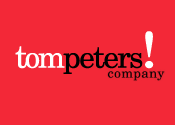Glasgow’s Govan High School, led by Head Teacher Iain White, is a fine example of a public sector organisation that is incorporating what we would call FSW thinking into their way of working. Their 7th Newsletter describes a number of FSW characteristics of Excellence.
Right upfront, they signal clearly their bold Ambition, which is of “all leavers going into positive destinations in jobs, training, college or university.”
One of the ways that they do this is through establishing links with employers, colleges, universities and other providers. They do this by initiatives such as hosting breakfast meetings for local employers and training providers at which topics like employability skills and what employers look for at interview are discussed. We would position effort of this kind under the Architecture element of FSW.
A strong connection is made between the School’s Ambition and its Performance Measures; in their article entitled “We are still making a difference” they list many success stories of pupils, but most telling statistic is that Govan High School has continued to reduce the number of leavers who are unemployed and has the highest percentage of pupils going into employment of all Glasgow schools. This focus on the legacy impact of the organisation’s work is typical of the Performance Element of FSW.
Finally, in FSW, one of the critical success factors is to ensure that your Talent feel connected with what the organisation is trying to achieve. The Govan High School Student Council has been set up to encourage students to make connections with others schools and relevant organisations such as the Chamber of Commerce. What better way to ensure ownership of the Ambition than to encourage the students to promote that Ambition to others?

